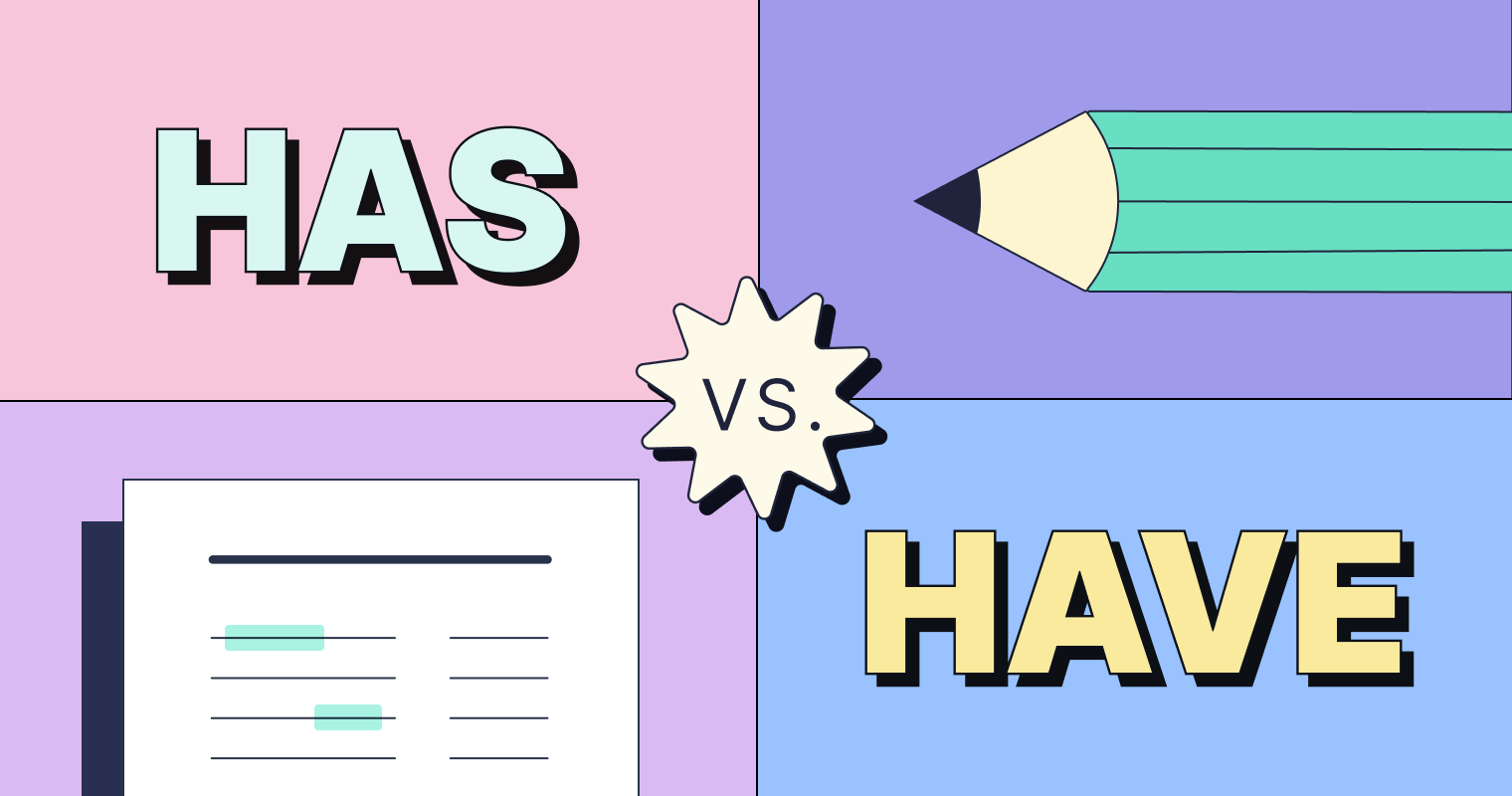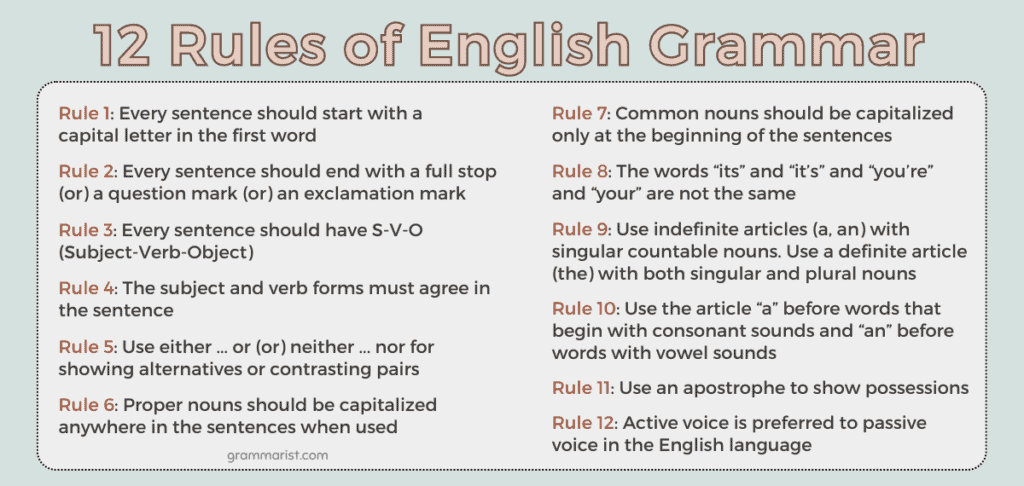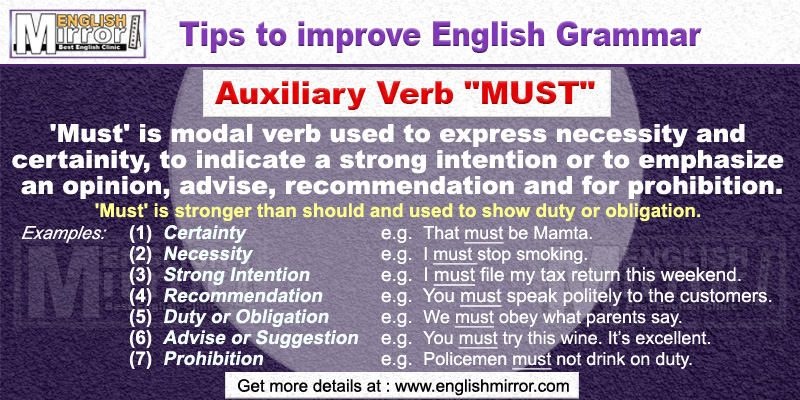Must vs. Have To in the English grammar
4.8 (239) · € 36.00 · Auf Lager

#x27;Must' and 'have to' express different levels of obligations. In this lesson, we will learn more about them and when to use each of them.

English Grammar Lesson16: I Must I Have To I Need To Modal Verbs - EBC

Mustn't vs. Don't Have To, Woodward English

Must vs Have to - English Grammar

Must vs. Have To - English Grammar - Gymglish

Learn English - The modal verbs must Must is a modal verb. Must 1 to express obligation or duty This also refers to law and regulations. -Imust memorize all of these rules

Has” vs. “Have”: What's the Difference?

14 MUST or HAVE TO (obligation), General grammar practice, G…

English Grammar: Types, Rules & Learning Strategies

Must vs. Have to - What is the difference? - English Grammar Lesson

Must vs. Have To Woodward English

Must or Have to? What's the difference? Perfect English Grammar - EnglishClass101

Auxiliary Verb 'Must' used to indicate a strong intention or obligation - English Mirror

Have to, must and should for obligation and advice


.jpg?v=8736931b)




